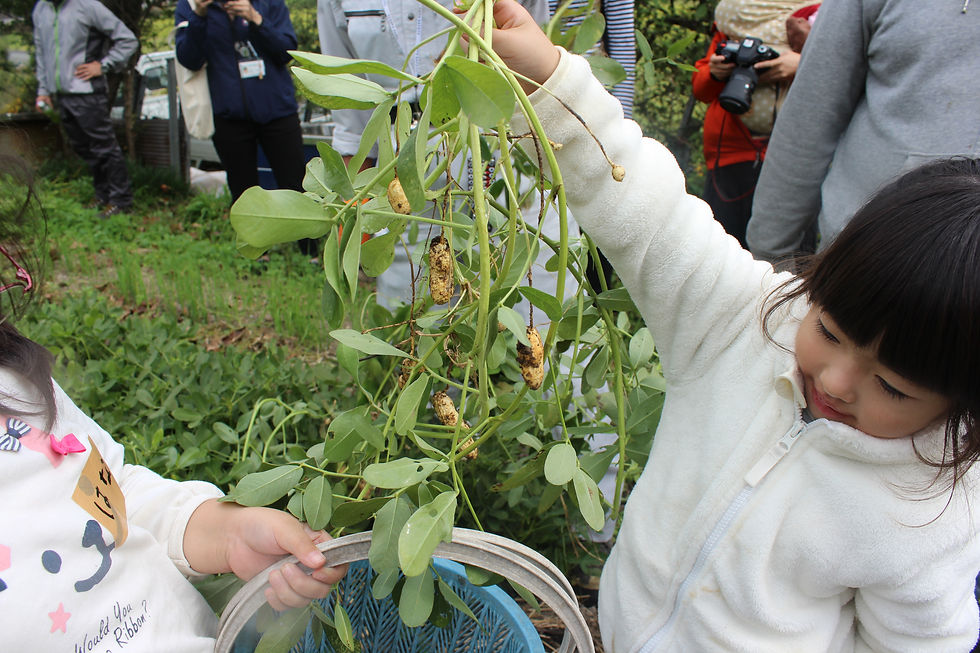November 2-3, 2019 ESD-DRR Camp
- 丹波市スタディツアー

- 2019年11月13日
- 読了時間: 3分
From November 2 to 3, the ESD-DRR Camp was held in Tamba City!
ESD stands for Education for Sustainable Development. In order to make our societies sustainable, education plays a big part. Whether adults or kids, education has the power of changing people's attitudes to become more socially responsible. Education is one of the focuses of the Sustainable Development Goals or the SDGs.
In Tamba City, you will find good hints in life for achieving SDGs. The people there are engaged in disaster recovery from the flood in August 2014, and moreover, are willing to dedicate to human development from the viewpoint of ESD. That is how this ESD-DRR Camp has been planned.
The program contained so man activities within the 24 hours. Utilizing a facility which used to be a nursery school, the participants faced challenges often found in evacuation shelters. They spent a night and cooked there. Kids were asked many questions such as: "What do you know about the word disaster?" and "What do you think will happen when there is a disaster?" Talks with the local residents who experienced the 2014 disaster, harvesting vegetables, and a walk in the forest were also included. The participants barely had time to rest!


Tableware made with bamboos: there are useful resources in nature
Kids gave lots of opinions, including one who shared his experience of being affected by the West Japan Flood and Osaka Earthquake in 2018. Their parents were also proactive in getting information: "How long did it take to get the water supply recovered when the 2014 disaster occurred?" and "What was the most challenging after the disaster?"
A new discovery was that life dependent on newest technologies are highly vulnerable to disasters: for instance, tankless toilets cannot be flushed without electricity, and it will be difficult to cook at all electric homes if power outage occurs.
A message from a local resident impressed everyone: "What I missed the most was cash! As my bank cards were missing under mud, I could not withdraw money. Even though stores in a few kilometers were not flood-affected and open, I could not buy my grandchildren snacks." Actually, one of the participants shared to others that there are copies of bank cash books, driver's license and credit card, as always ready in her emergency bag.

Participants brought their emergency bags to the Camp:
some had lots of food and others utilize hiking items in their bags.
There were diversity and new findings.


Participants harvested sweet potatoes, carrots and bell peppers
Vegetable harvesting was done to emphasize the abundant resources living by nature gives.

For dinner, veggies fresh from the field were cooked to make curry.
Curry roux and rice in the emergency bag would be quite stress-relieving.

Curry + rice was enjoyed in the bamboo containers!
After filling our stomachs, participants made emergency toilets, partitions and rugs made with cardboard.

Adults helped the kids make those

There you go!
Toilet-making was to emphasize the importance of being prepared for a waterless situation. Anybody could be emotionally prepared if they know that usual toilets may not be available. Additionally, we hope those kids will be able to raise awareness of toilets in disaster situations!


Partition and rug making at night.
Inside those cardboard walls are quite warm and cozy.
After long-enough sleeps, the participants woke up to miso soup.

This looks like emergency food supply in disaster

Amount of rice was limited - parents prioritized their kids over themselves
The first activity of the day was a walk in the forest. In the flood disaster of August 2014 in Tamba, many factors caused sediments in the mountain to flow into communities. On this day, participants got to see the forest managed by Kita-Okamoto community which is trying to make their forests resilient to disasters.



Let's go!

Kids were helping each other and picking acorns.

Group shot in front of fallen trees
After the walk, Mr. Kuroda, the community leader of Kita-Okamoto offered a harvesting experience of peanuts.

Playing with ladybugs, we had more than enough peanuts.

Washed the peanuts

and enjoyed the very tasty boiled peanuts!
The participants survived the 24-hour survival experience! Being thankful to the food, water and fire, we had the last meal. In spite of the kids wanting to run around, quiz for completion was conducted.

All of the kids were able to answer what they have learned during the Camp!

Here is your certificate!
Kids got along very well with each other, and friendship between the locals and the visitors was encouraged. We will be waiting for your visit, especially the mother who said "I would love to join the winter activities, but am afraid of ice roads"!

When the climate is warmer, we will conduct another ESD-DRR Camp. Please message us at tambacitystudytour*gmail.com (change * to @) for information and notification.

コメント